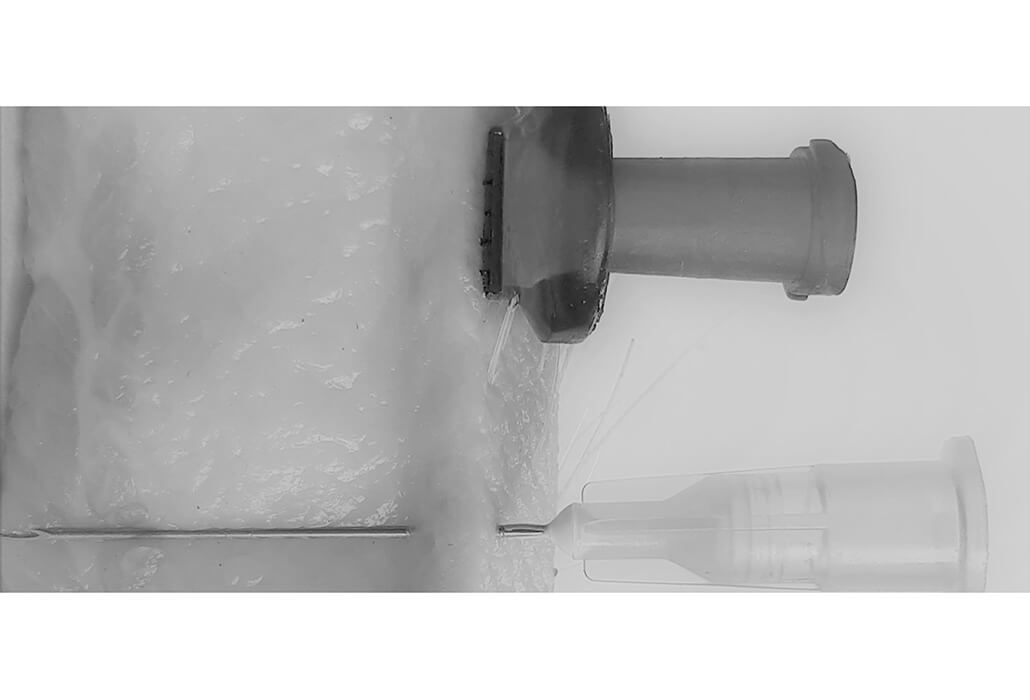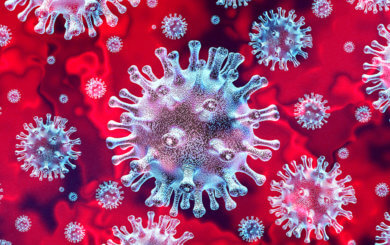
Researchers at Swansea University are developing the world’s first smart vaccine device that will both deliver the COVID-19 vaccine and measure its efficacy through monitoring the body’s associated response.
The research, from the Institute for Innovative Materials, Processing and Numerical Technologies (IMPACT), will produce the vaccine through the use of microneedles (MNs) to create a ‘smart-patch’. This device will simultaneously measure a patient’s inflammatory response to the vaccination by monitoring biomarkers in the skin.
Microneedles are tiny needles – their tips are measured in millionths of a metre (micrometer) – designed to break the skin barrier and deliver medicines in a minimally invasive manner. A classic example is the transdermal nicotine patch that delivers nicotine through skin to help people give up smoking.
Microneedles provide a safe and effective method to deliver vaccines with added attributes of requiring lower vaccine doses, permitting low-cost manufacturing, and enabling simple distribution and administration. A microneedle delivery patch is easy to apply and minimally invasive – combined with the proposed measurement capabilities, this new vaccine system would enable a personalised vaccination approach.
Project lead Dr Sanjiv Sharma of Swansea University comments:
“Measuring vaccine efficacy is extremely important as it indicates the protective effects of vaccination on an individual via the level of reduction of infection risk in a vaccinated person relative to that of a susceptible, unvaccinated individual. This measure of vaccination effectiveness will address an unmet clinical need and would provide an innovative approach to vaccine development.”
The project, titled Smart vaccine devices for delivery of COVID-19 vaccination, will be led by a team of researchers with expertise in the use of microneedle arrays for transdermal therapeutic drug delivery and diagnostic applications.
The team will build on these distinct technologies by developing the first dual functionality microneedle-based COVID-19 smart-patch, capable of delivering a vaccine and measuring the immune response in the form of protein biomarkers thus establishing the efficacy of vaccination.
Dr Sharma continues:
“Skin vaccination using MNs has been described as a superior immunization approach due to its potential to overcome immune tolerance observed in pregnancy, and lower vaccination costs through antigen dose-sparing, which is especially relevant in underserved countries.
The primary goal of this project is to create a prototype of smart vaccine delivery device that can not only deliver the COVID-19 vaccine transdermally but also monitor biomarkers in the skin compartment in a minimally invasive way, offering real-time information on the efficacy of the vaccination. The new method would change the way in which vaccine efficacy trials are performed from a statistical assessment to a scientific measurement of patient inflammatory response to vaccination.
The real-time nature of the platform will mean rapid results allowing faster containment of the COVID-19 virus. This low-cost vaccine administration device will ensure a safe return to work and management of subsequent COVID-19 outbreak waves. Beyond the pandemic, the scope of this work could be expanded to apply to other infectious diseases as the nature of the platform allows for quick adaptation to different infectious diseases.
We are currently getting the platform ready and we hope to do human clinical studies on transdermal delivery with our existing partners at Imperial College London, in preparation for final implementation.”
The project is funded by the Welsh Government Sêr Cymru funding programme. The IMPACT operation is part-funded by the European Regional Development Fund through the Welsh Government and Swansea University.
News & Analysis






